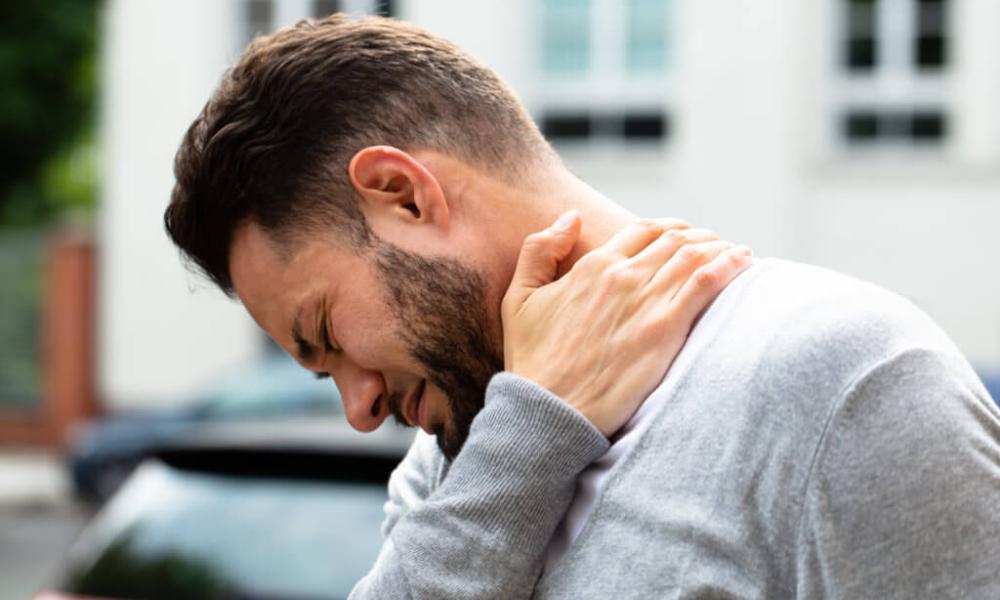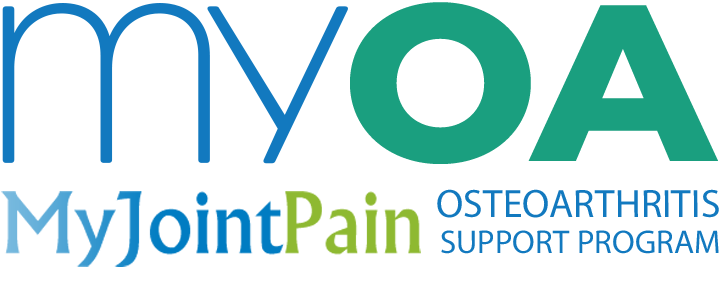
This fact sheet has been written for people with neck pain, due to osteoarthritis (OA). It provides information about neck pain fro OA and what can be done to help it. It also tells you where to find further information.
What is osteoarthritis of the neck?
Neck pain is pain that is felt in the upper part of the spine. It is also a sign that the joints, muscles or other parts of the neck are injured, strained or not working properly.
Neck pain is very common with about 1 in 10 people having it at any given time. Neck pain is rarely due to serious disease. Staying active will help you feel better faster and prevent more problems.
OA of the neck happens when the cartilage and facet joints undergo normal age-related change. The bones in the neck can sometime develop bony projections called osteophytes. This happens commonly in the cervical vertebrae as they are responsible for the neck's flexibility and range of movement.
When it comes to osteoarthritis of the neck, it is important not to ignore persistent pain and discomfort, as damage can occur to the spinal cord. In some circumstances, this can cause serious problems, such as weakness in the legs or arms or incontinence of the bladder or bowel. If you are concerned about persistent neck pain it is important to consult your doctor.
What are the symptoms of neck osteoarthritis?
Neck pain can be felt in the middle of the neck or on either side. The pain may travel to the shoulder or shoulder blade. It may even go right down your arm. Headaches and pain at the back of the head may also be caused by joint restriction or tension associated with osteoarthritis in the neck. Your neck may feel stiff, making it difficult to turn or move your head.
causes neck pain?
There are many joints, muscles and other structures in the neck that can cause pain. It may be the result of an injury but in most cases, it is not possible to find a cause of the pain. It can be worrying not knowing exactly what is wrong.
The good news is that research shows you do not need to know the exact cause of the pain to be able to deal with it successfully. Less than 1 in 100 cases of neck pain are caused by a serious medial problem.
Should I see a doctor?
You should talk to your doctor or other health professional if your pain is ongoing and persistent. They will ask you
about your symptoms and examine you. In most cases tests such as x-rays and blood tests are not helpful in finding out the cause of neck pain unless there has been an obvious injury or strain. They may check for any serious medical problems that could be causing but these are rare. You should see your doctor if:
If you have neck pain following a fall or accident, such as a car accident.
Your pain does not settle down or starts getting worse.
You also have symptoms such as headaches and vomiting, dizziness, losing weight, tingling or numbness in the arms of legs, sweats and chills or problems swallowing.
What will happen to me?
For most people, neck pain settles down fairly quickly. This usually takes several weeks but can vary between people. Some people still have problems with their neck even after the original problem has settled down. This is often because a lack of activity has caused stiffness and weakness of the neck muscles.
What can I do?
Talk to your healthcare team. It is common to worry about the cause of your pain and how it will affect you. Talking to you doctor or another health professional about your worries can be helpful. You will usually find there is not serious cause and there are ways you can deal with it.
- Learn about neck pain and play an active role in your treatment. Not all information you read or hear about is trustworthy so always talk to your doctor or healthcare team about treatments you are thinking about trying. Reliable sources of further information are also listed in the section below. Self-management courses aim to help you develop skills to be actively involved in your healthcare. Contact your local arthritis office for details of these courses.
Learn ways to manage pain. Talk to your healthcare team about ways to relieve your pain.
Stay active. Your body is designed for movement. Exercise is one of the most important treatments for osteoarthritis of the neck. It helps to reduce pain and maintain your general health. To protect your sore joints, try low-impact activities. Examples of low-impact activities include cycling and walking. You could also try:
- Water exercise: The buoyancy of the water can help you move more freely than you can on land. You could try gentle swimming , do a hydrotherapy session with a physiotherapist or join a local warm water exercise class.
- Strengthening exercises: Physiotherapy exercises to strengthen the muscles around your neck may also help reduce pain from osteoarthritis.
- Tai chi: Studies show that tai chi can help reduce pain and stiffness for people with osteoarthritis of the neck.
See a physiotherapist, osteopath or other health professional for advice about exercises to keep your body moving. See the Working with your healthcare team information sheet for more information about seeing a physiotherapist.
Medicines. There are many different types of medicines that can help the symptoms of neck osteoarthritis. Your doctor or pharmacist can help you understand which medicines are right for you and how best to use them. Always talk to your doctor or pharmacist about your medicines, as even natural and over-the-counter medicines can have side effects.
- Acknowledge your feelings and seek support. It is natural to feel scared, frustrated, sad and sometimes angry when you have pain. Be aware of these feelings and get help if necessary. You can learn skills to recognise and calm anxiety or strong emotions if you find they start to affect your daily life.
There are many other treatments for neck pain that have not been well-proven. Examples of these treatments include:
- transcutaneous electrical nerve stimulation (TENS)
- heat and cold therapy (eg. hot water bottles, heat packs, ice packs)
Your healthcare team can give you more advice and information about whether any of these or other treatments might be useful for you.
Other resources
State and Territory Arthritis Offices
Your local Arthritis Office can provide further information to assist you and will have a range of education and support activities. Click here to find your local office or call 1800 011 041.






